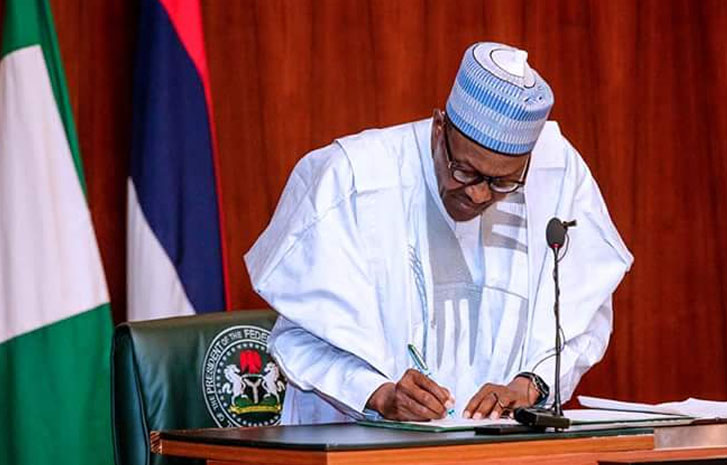- Time to end the executive-legislature annual bickering over the bill in Nigeria’s interest
ON May 27, President Muhammadu Buhari signed the 2019 Appropriation Act. The legal document, which should guide the 2019 fiscal year, came five months into the year. The President had presented the appropriation bill before the National Assembly on December 19, 2018, and it took the lawmakers about five months to pass it as law. Significantly, the 2018 Appropriation Act was signed on June 6, 2018; in both instances after much bickering between the executive and the legislature.
Indeed, at the presentation of the 2019 Appropriation Act, the President was heckled by the lawmakers, especially members of the opposition party. In their post-presentation comments, the lawmakers accused the president of lethargy in preparing and presenting the appropriation bill, while the presidency laid the blame for the unruly conduct at the budget presentation on the lawmakers who lost their tickets to contest in the last general elections.
While the two arms bicker, the national economy is at the receiving end of the unpredictable fiscal policies of the government. Between 2015 and 2017, Nigeria suffered a depressed economy. While technically the nation is out of depression, the margin of indices shows that we could regress, if common sense and patriotism do not prevail in dealing with the budget.
Luckily for President Buhari, he has another chance to start afresh, when new leaders and lawmakers emerge in a few days’ time. In his parting shot at the Senate President, Bukola Saraki, and Speaker Yakubu Dogara, the President accused the duo of less than stellar performance in office. He blamed the late passage of the budget on their lack of patriotism. While denying the accusation, Speaker Dogara accused the President of late presentation of the bill, very close to the end of the year, since he took over in 2015.
The legislative arm also laid the blame for the delay on the refusal of the ministries, departments and agencies (MDAs) of government to come before relevant committees to defend their proposals. Another issue that has caused friction between the legislature and executive is about who has the final say on what comes out as the Appropriation Act. In 2018, President Buhari nearly refused to sign the act, accusing the legislature of padding the bill sent to them, with the so-called constituency projects.
With both parties not willing to approach the courts to determine the spheres of influence and constitutional authority over the making of appropriation act, the bickering over constituency project may again rear its ugly head. However, we hope the fear of the consequences for such unnecessary braggadocio, which could result in another recession, will compel the disputants to collaborate in the national interest.
As the nation awaits the election of new leaders for the ninth National Assembly, the President can lobby for the emergence of people he believes to be credible leaders. It will not be acceptable to be lax and merely blame the legislature at the end of the day. On their part, whoever emerges as Senate President and Speaker of the House of Representatives must realise the urgent need to provide the legislative framework for the executive to provide employment, security and national cohesion.
The Appropriation Act provides the bedrock for the progress of the nation in all spheres. The executive and the legislature must therefore collaborate to provide a timeous and effective framework for national survival and progress. The promise of next level by the All Progressives Congress (APC) -led Federal Government must manifest in early submission of the appropriation bill, and passage before the end of the preceding year of the budget.
We should return to the budget cycle of January to December.
















































